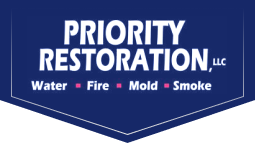We’ve all spilled a cup of water on our beautiful hardwood floor from time to time. Much like we’ve all accidentally dragged water into the home during a rainy day or suddenly experienced a broken pipe in the kitchen.
These are things that happen to everyone no matter how careful you are, but have you ever wondered how damaging they are to your hardwood floors? To many, it’s a thought that only comes when it’s too late. Luckily for you, we’re going to answer that question in this post.
So, can hardwood floors withstand water?
It’s not the answer you want to hear, but the answer is yes and no. Sometimes water completely ruins hardwood flooring — to the point it needs to be replaced. Other times, water won’t have any impact on the hardwood floor and no repair is needed.
Believe it or not, there are four major factors that play a role in how protected your hardwood flooring is from water — your response time, the type of wood, the amount of moisture, and the degree of damage. Let’s take a closer look at these four factors:
- How Quickly You Respond – homeowners always have an opportunity to save their floor from water, but they must respond in a timely manner. The longer it goes unnoticed, the more difficult it is to restore.
- Type of Wood Present – different types of wood are more susceptible to water damage than others. You should consider whether you have strip wood, plank wood, engineered wood, or laminate flooring.
- Amount of Water or Moisture – all types of wood can withstand a certain amount of moisture, normally around 6-12 percent. Anything higher than that is cause for concern, especially with repeated contact.
- Degree of Damage – just because there’s water damage doesn’t mean the flooring needs to be replaced. For the most part, only severe water damage warrants replacing flooring. Anything less-severe could potentially be saved.
When water makes contact with your hardwood floor, it immediately starts to absorb that water into its tiny little pores. Anytime the water is present for longer than 24 hours, mold and mildew can start to form, which can wreak havoc on your home and health.
Of course, that’s in addition to the damage it can do to the floor itself. Especially the type of water damage Philadelphia residents are prone to year-round.
Tips for Drying Your Hardwood Floor Properly
The moment your hardwood floor meets water, time is of the essence. You must act fast if you want to limit the amount of damage that water can do to your floor. Don’t worry, we have a wide variety of tips you can follow when keeping your hardwood floors dry at all times:
- For bigger spills, utilize a wet/dry vacuum when removing the water. It allows you to attract all the water molecules deep inside the floor’s pores.
- Always make sure you clear the area when a spill or flood occurs, that way you limit the amount of items damaged.
- After drying the area, clean it with a non-sudsy disinfectant to remove any dirt or debris.
- Dehumidifying the area while running large fans on high with the air conditioning on helps remove moisture quicker. Keep a window open, that way the moisture has somewhere to go.
Of course, the best advice we can give any homeowner when experiencing water damage inside their home is to call a professional. They have the proper equipment, they have the knowledge, and they have the experience to get the job done right the first time around.
Contact Priority Restoration!
If you need water damage restoration in Philadelphia or the Lower Merion area, contact Priority Restoration today. We can’t wait to help you through your situation and prevent mold from having the opportunity to grow in your home.









